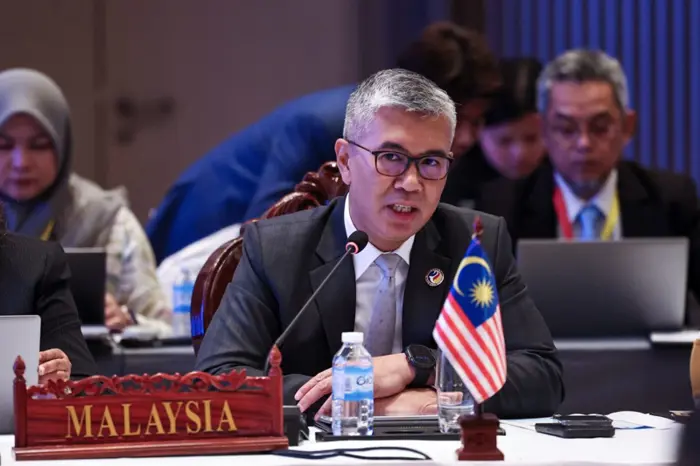KUALA LUMPUR: Malaysia and the United Arab Emirates (UAE) have successfully concluded the negotiations for a Comprehensive Economic Partnership Agreement (CEPA), set to eliminate or reduce tariffs, lower trade barriers, foster private-sector collaboration, and create new investment opportunities.
Minister of Investment, Trade and Industry Tengku Datuk Seri Zafrul Abdul Aziz said the CEPA, as Malaysia’s first free trade agreement (FTA) with a Gulf Cooperation Council (GCC) nation, will enhance trade, boost investments, and deepen Malaysia-UAE economic ties.
“We view the UAE as a strategic hub for Malaysian exporters to access markets in the Middle East, North Africa and certain parts of Europe, particularly as Malaysian exports, such as electrical and electronics, machinery, jewellery, prepared foodstuff, tropical fruits, palm oil, cocoa and rubber, will immediately enjoy zero import duties when this agreement comes into force.
“The CEPA is also a strategic leverage for UAE-based companies to optimise Malaysia as a gateway into the ASEAN market, which, in turn, will provide tremendous opportunities for our businesses – particularly small and medium enterprises (SMEs) – through integration into regional supply chains, capacity-building and knowledge sharing via the UAE investors.
“The Ministry of Investment, Trade and Industry (MITI) looks forward to working closely with UAE Minister of State for Foreign Trade Dr Thani Ahmed Al Zeyoudi and the UAE Ministry for Foreign Trade to ensure the swift ratification and implementation of the CEPA,” he said in a statement today.
Meanwhile, Thani said the CEPA reflects the productive ties that have developed between the UAE and Malaysia, as well as Southeast Asia as a whole.
“Malaysia is a long-standing and trusted trade partner that, like the UAE, is seeking to enhance its economic prospects through increased trade and targeted investment.
“As the fourth largest economy in the Southeast Asia region, and with economic growth in 2024 set to outstrip forecasts, Malaysia offers substantial opportunity for our exporters, industrialists and business leaders, especially in high-growth sectors such as energy, logistics, manufacturing and financial services,” he said.
According to MITI, the UAE’s CEPA initiative aims to elevate its non-oil foreign trade to US$1 trillion (US$1 = RM4.29) by strengthening relationships with key markets worldwide.
“This ambitious strategy not only enhances ties within the ASEAN bloc but also positions Malaysia as a key player in this economic landscape, benefiting from existing CEPAs with Indonesia and Cambodia that further stimulate bilateral trade opportunities,” it said.
MITI added that the CEPA also underscores the strengthening economic relationship between Malaysia and the UAE, with bilateral non-oil trade surpassing US$4.9 billion in 2023.
In the first half of 2024, non-oil trade reached US$2.5 billion, reflecting a 7.0 per cent increase from the same period in 2023.
“The UAE is Malaysia’s second-largest trade partner in the Arab world, constituting 32 per cent of Malaysia’s trade with Arab countries, while Malaysia ranks as the UAE’s 12th-largest trading partner in Asia and fifth among ASEAN nations.
“The UAE is a vital market, accounting for 40 per cent of Malaysia’s merchandise exports to the Arab World, highlighting Malaysia’s strong trade presence in the region,” MITI said. – Bernama

